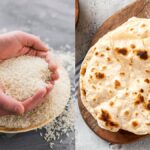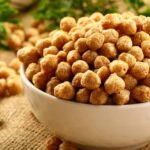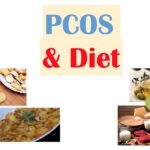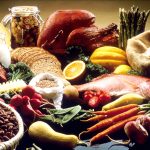Which Atta Is Best For Healthy Life
Which Atta Is Best For Healthy Life – Roti is a vital part of everyday food in most Indian households and it is a great source of carbohydrates, energy, fibers, and other nutrients. However, for a healthy life, it is important to get a balanced diet and make a few changes in your lifestyle. In this blog, we are going to discuss “Which atta is best for healthy Life”?

Atta or flour is a great source of vitamins, minerals, antioxidants, vitamins, healthy carbohydrates, fiber, and proteins. It has a good amount of B1, B5, B3, riboflavin, calcium, iron, and folate. However, there are many alternatives available in the market instead of wheat flour which has much more nutritional value. This list will cover all the information about the best atta for a healthy life.
What is a Healthy Life and Its Main Factors?
It is difficult to define what is a healthy life as answers may be personal for each one of us. But still, there are some common findings in those answers. Like being happy, and fitting in a jean, running or trekking, getting a sound sleep. So, we can make a list of the most important factor for defining a Healthy Lifestyle.
To be healthy is complex and takes a long span of time which may vary from person to person. One can start by eating healthy, doing daily exercise or any physical activity, and taking care of your mental health.
There are some main factors that determine a healthy lifestyle
- Healthy Diet
- Physical Activity
- Healthy Body Weight
- Longevity of life
- Mental health
- Meditation
List of the Healthiest Atta/Flour Available
Bajra Atta
Bajra atta is a gluten-free flour that is also rich in protein,omega-3, potassium, iron, fiber, magnesium, etc. It has high nutritional value and supports weight loss. In 100g of bajra, it has 12g of proteins, 1g of fiber, and 242g of phosphorous. So, bajra atta lowers cholesterol and blood pressure and it is good for the heart.
Buckwheat Flour or Kuttu Ka Atta
Kuttu ka atta is widely consumed during fasting and festivals and it is the most recommended atta for weight loss. It is packed with fiber, carbohydrates, and proteins. Also, it is rich in antioxidants or polyphenols. That’s why nutritionists/dieticians commonly recommend buckwheat flour or kuttu ka atta to diabetic patients. In 100g of kuttu ka aata, there is 19g of fiber and 335 kcal of calories.
Oats Atta
Oats are a popular breakfast and it is rich in carbohydrates. It has a low glycemic value that helps control blood sugar levels. Also, oats are budget-friendly and contain 553.5 kcal of calories. Apart from it, oats atta has 90g of carbs, 12.5g of fats, and 20.1g of protein per 100g.
Ragi Atta
Ragi is quite popular in the Southern part of India and is the best atta for weight loss. Also, ragi atta is a great source of fiber and calcium. It has many benefits such as improved digestion, reduce cholesterol, and being good for lactating mothers. Being rich in iron, it is a recommended flour for diabetic patients. Per 100g for ragi atta contains 14gms of protein and 455 kcal of calories.
Almond Atta
Almond atta is low in calories and has a low glycemic index (GI). Also, almond flour is rich in vitamin E, calcium, fiber, and magnesium. 100g of almond atta contains 163 kcal of calories, 6.1g of proteins, 5.6g of carbohydrates, and 14.2g of fat. Almond flour helps in keeping the heart healthy by lowering bad cholesterol levels.
Coconut Atta
Keto-friendly atta that has high carbohydrates, low calories, and is a good source of fat, fiber, minerals (iron & potassium), and many more. 100g of coconut atta contains 210 kcal of calories, 8.5gms of proteins, 13gms of far, 25gms of fiber, and 34gms of carbs.
Conclusion
At last, we hope you find this blog on “ Which Atta Is Best For Healthy Life” informational. One should understand that to maintain a healthy lifestyle there are several steps that need to be taken including healthy eating, exercising, take care of mental health. However, if you want assistance in planning the diet chart, then reach out to Dietitian Shuhbhra today! She offers in-person and online consulting services in India and holds over 10+ years of experience.
Frequently Asked Questions (FAQ)
Question – Which is the best atta for weight loss?
Answer – Ragi and buckwheat atta are the best for losing weight.
Question – What are the ingredients of multigrain atta?
Answer – There is a total of 7 ingredients in multigrain atta such as barley, wheat, brown rice oats, buckwheat, quinoa, and seeds like flaxseed, etc.
Top Related Searches
- Which Atta Is Good For Weight Loss
- Which Atta Is Best For Weight Gain
- Which Flour Is Best For Weight Loss In India




